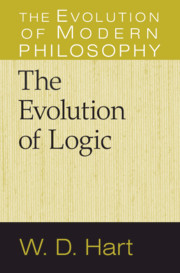TEN - The Zoology of Reality
Published online by Cambridge University Press: 05 June 2012
Summary
Logic, I should maintain, must no more admit a unicorn than zoology can; for logic is concerned with the real world just as truly as zoology, though with its more abstract and general features.
Russell, Introduction to Mathematical Philosophy, 169In the last four chapters, we reviewed four major monuments of twentieth-century logic. These four results are less familiar to philosophers than Gödel’s proof of the incompleteness of arithmetic. It would be a shame if philosophy lost touch with logic. From Dedekind, Cantor, and Frege until World War II, the signal logicians were almost always both signal mathematicians and signal philosophers. It is not as if after the war such people suddenly vanished; they did not. But increasingly, mathematical logic became a recognized subdiscipline of mathematics. It is rare for our four results to be taught in a philosophy department, and mathematics courses usually move very swiftly for philosophers. Equally, many philosophers know first-rate logicians in their mathematics departments who are philosophically acute but shy about speaking up among philosophers. (A former colleague called philosophy a blood sport.) If the philosophers do not keep up as the mathematicians move on, it is inevitable that they will lose touch.
But why should a philosopher put in the significant effort needed to keep up with the mathematicians? Since the renaissance of logic in the nineteenth century, philosophers have been intrigued by its metaphysical and epistemological intimations. One thing it revealed was a whole new kind of objects, sets. Sets have more than earned their credentials in unifying and organizing disparate subjects and tracts of knowledge, so much so that by now, no education in abstract pursuits is adequate without some familiarity with sets. It can sometimes feel as if we had found a sixth and more primitive sort of vertebrate that makes sense of fish, amphibians, reptiles, birds, and mammals.
- Type
- Chapter
- Information
- The Evolution of Logic , pp. 268 - 280Publisher: Cambridge University PressPrint publication year: 2010



